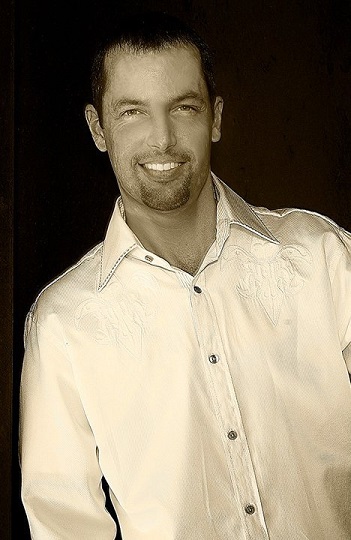 |
|||||||||||||||||
|
|
|||||||||||||||||
|
◄ Back to What´s New At Savon - Monthly Newsletter Home Page August 2023 NewsletterWhat´s New at Savon
Quote Of The Month: “In school, you‘re taught a lesson and then given a test. In life, you‘re given a test that teaches you a lesson.” (Tom Bodett – American author, voice actor – 1955–Present) Congratulations To: To Your Health With Jourdin Hendershot: Coffee Vs. Your Health
Causes Osteoporosis: Coffee can cause the body to excrete calcium in urine. You do not want to lose your calcium because this can cause osteoporosis. To counter balance your calcium intake you can eat calcium rich foods or you can add one to two teaspoons of milk to your cup of coffee. Heart Rhythm disturbance: Coffee can cause irregular heartbeats also known as (Artial fibrillation) Other Cons of drinking coffee can consist of:
Grandma´s Kitchen With Grandma C.: Homemade Brown Sugar Coffee Creamer
Heat the mixture to a simmer, then turn off the heat. Let it cool, then store it in the refrigerator in a covered container such as a plastic shaker or a mason jar. *Dark brown sugar will give you a sweeter creamer. You can use more or less brown sugar, depending on the level of sweetness you desire. You can also use coconut sugar if you are trying to keep cane sugar out of your diet. Enjoy! And remember, if it looks and smells good, eat it!! If you have a recipe that you would like to share with Grandma C., drop her an email by clicking here.
Crazy, Zany Facts We Bet You Didn´t Know
Dental Talk - A Member Blog Forum:
These are just a few of the topics. Our blog site contains many other interesting topics. Please join us!! Questions From Our MembersAddressing a very common question.“Do I need to contact Savon when I change my dentist?” Savon’s AnswerAlthough Savon allows its members the freedom to use any participating preferred provider on the plan; we do ask members to notify Savon when switching to a new provider.As a courtesy to the dentists, we provide them with monthly membership rosters, informing them of new additions and removals within their practice. If you have changed your provider, or would like to change providers, please contact our Customer Service department and they will be happy to assist you. Tooth Talk With Tommy The Wisdom Tooth Toothbrush Injury Causes Stroke In 2–Year–Old BoyA direct reprint of an article by Melissa Busch of DrBicuspid.com
The next day, the boy developed dysarthria. He was taken to a hospital and underwent a computed tomography (CT) scan. Imaging showed suspected cerebral infarction, and he was transferred to another hospital. During a physical exam, he registered a 12 on the Glasgow Coma Scale and had mild swelling over the right jaw to the neck. A neurological exam revealed muscle weakness and pyramidal tract sign on his left side. A clinician saw only a small scar in the right retromolar region, which appeared to be an abrasion caused by the toothbrush, the authors wrote. Contrast–enhanced CT and computed tomography angiography (CTA) showed air contamination in the interspace of the pharynx, which suggested that the toothbrush had penetrated the oral cavity and reached the area of the internal carotid artery. Magnetic resonance angiography (MRA) of the head and neck revealed a cerebral infarction, as well as interruption of the right carotid artery and the right middle cerebral artery. Other diagnostics, including an echocardiograph, showed no cause for brain infarction, they wrote. Therefore, he was diagnosed with ischemic stroke associated with blunt cerebrovascular injury due to intraoral blunt trauma with a toothbrush. To prevent the lesion from expanding, the boy was admitted to the intensive care unit and was treated with aspirin, edaravone, and antibiotics. Follow–up imaging showed no serious complications like pseudoaneurysm formation, hemorrhage infarction, cerebral hernia, or abscess formation. On the 26th day of his stay in the hospital, the boy was discharged. The lower part of his body on the left side remained paralyzed, the authors wrote. Common accident needs close attention Falling with stick shaped objects in the mouth is one of the most common causes of intraoral injuries in children, especially infants and toddlers. Sometimes objects, including toothbrushes, can injure blood vessels without directly reaching them. Blunt trauma in the oral cavity can result in immediate and local hyperextension of the internal carotid artery, resulting in occlusion or thrombus formation. The development of symptoms may vary. They can occur when the thrombus is formed or when the blood clot reaches distally from the internal carotid artery. It can take three to 60 hours from the time of the injury for symptoms to appear. CTA and MRA are used to screen adults with suspected blunt cerebrovascular injury. Some screening criteria have been examined for blunt cerebrovascular injuries in children; however, they may not be relevant for minor oral injuries. This along with the delayed onset of symptoms can make diagnosis difficult in pediatrics. Therefore, children with oral injuries may require close follow–up or hospitalization for at least three days, Kawakami et al wrote. “In this case, poor comprehension of the fact that BCVI occurs with time after injury led to a diagnostic delay,” they wrote. Until next time; brush, floss and keep smiling! |
|||||||||||||||||






